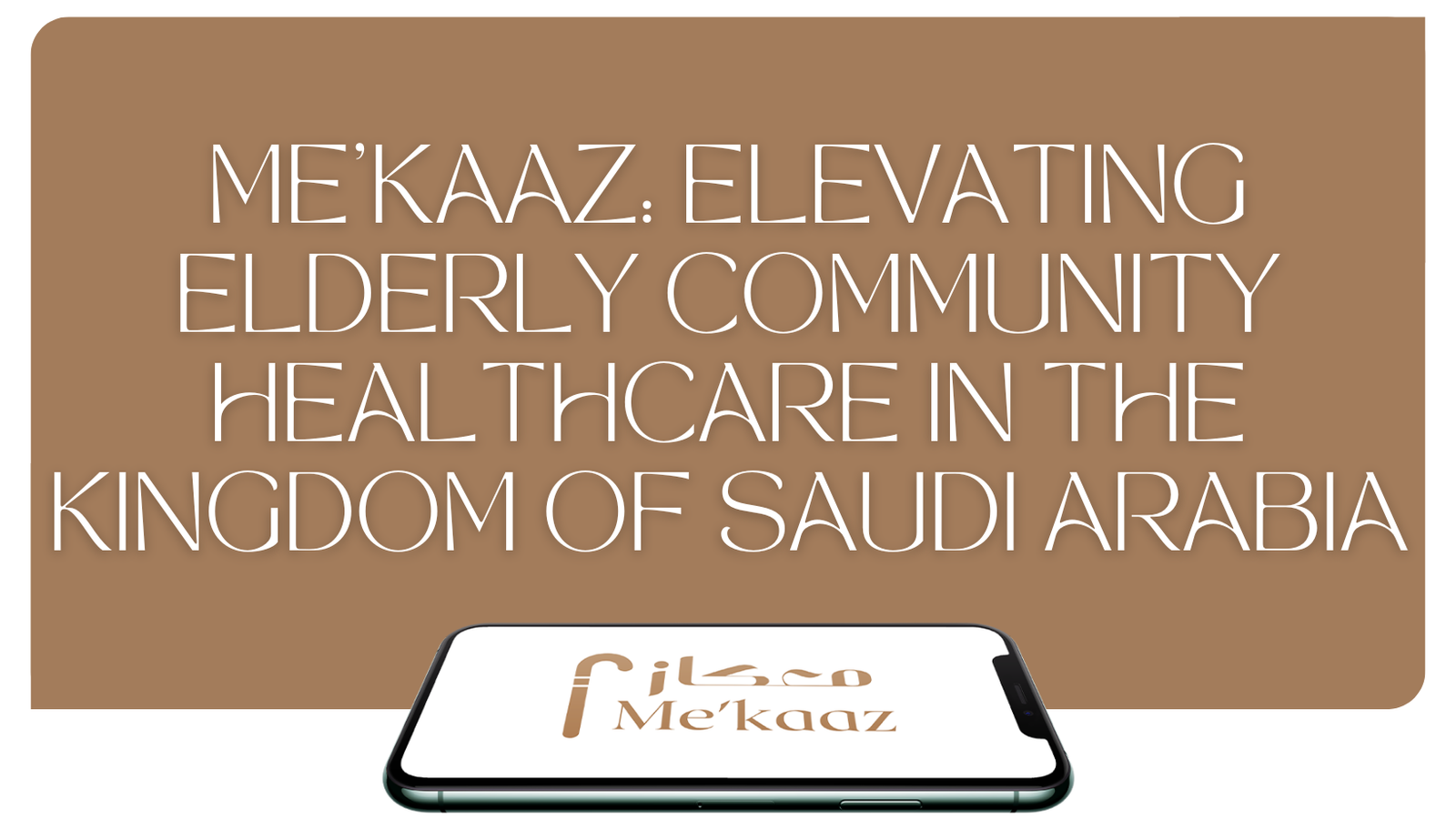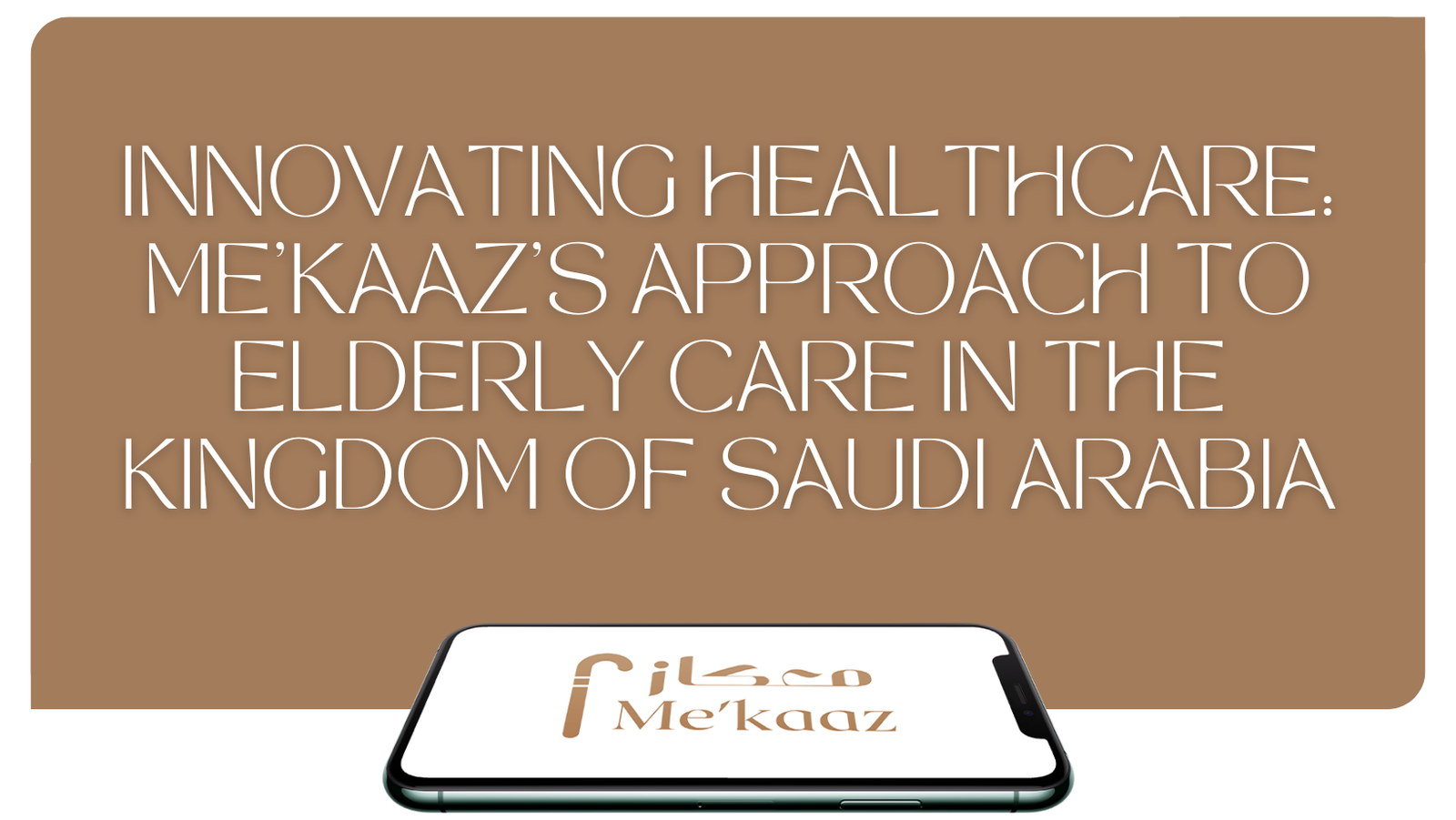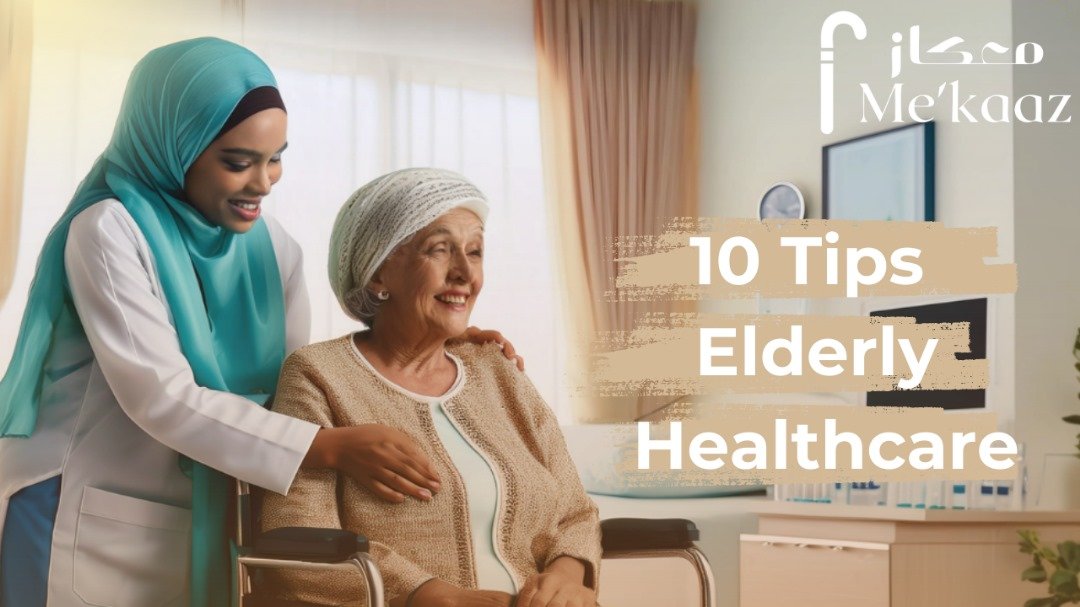The Importance of Elderly Care in Saudi Arabia: Empowering and Supporting Older Adults
In Saudi Arabia, recognizing the importance of elderly care is crucial for empowering and supporting the older adult population. As the country experiences demographic shifts, with a growing number of older adults, it becomes increasingly important to prioritize their well-being and ensure they receive the care and support they need.
Elderly care in Saudi Arabia goes beyond simply providing medical assistance. It encompasses a holistic approach to aging, focusing on physical, emotional, and social well-being. This includes creating age-friendly environments, promoting active and healthy lifestyles, and addressing the unique needs and challenges faced by older adults.
By investing in elderly care, Saudi Arabia can improve the quality of life for older adults, enhance their independence and dignity, and foster their inclusion in society. Additionally, by empowering and supporting older adults, the country can tap into their wisdom, experience, and contributions, benefiting the entire community.
In this article, we will delve deeper into the importance of elderly care in Saudi Arabia, exploring the initiatives and programs in place to promote the well-being of older adults and discussing the positive impact it has on society as a whole. Together, let’s work towards a future where every older adult in Saudi Arabia can age with grace and dignity.
Challenges faced by older adults in Saudi Arabia
As Saudi Arabia experiences rapid urbanization and modernization, older adults face a unique set of challenges that affect their quality of life. One significant issue is the cultural shift away from traditional family structures, which historically provided support and care for the elderly. As younger generations become more engaged in their careers and personal lives, the burden of caregiving often falls on fewer family members, leading to feelings of isolation among older individuals. This shift can exacerbate feelings of loneliness and neglect, creating a pressing need for community-based support systems.
Additionally, many older adults in Saudi Arabia grapple with health-related challenges. Chronic illnesses such as diabetes, hypertension, and heart disease are prevalent, requiring ongoing medical attention and management. However, access to medical facilities and specialized care can be limited, especially in rural areas. This disparity in healthcare access can hinder older adults from receiving timely and effective treatment, further complicating their health situations. Moreover, the stigma surrounding mental health issues often prevents older adults from seeking the psychological support they may need, leaving them vulnerable to depression and anxiety.
Economic factors also play a pivotal role in the challenges faced by older adults. Many seniors in Saudi Arabia rely on fixed incomes from pensions or savings, which may not cover rising living expenses. The cost of healthcare and medications can be particularly burdensome, creating stress and anxiety about financial security. As a result, some older adults may delay necessary treatments or forgo medications, jeopardizing their overall health and well-being. Addressing these multifaceted challenges is essential to ensure that older adults can lead fulfilling and dignified lives in Saudi Arabia.
The importance of empowering and supporting older adults
Empowering older adults is essential for fostering their independence and enhancing their quality of life. This empowerment involves recognizing their rights, abilities, and contributions to society. By providing access to resources, education, and opportunities for engagement, Saudi Arabia can enable older adults to participate actively in their communities. Such participation not only benefits the individuals themselves but also enriches society by harnessing the wisdom and experience of older generations. Ensuring that older adults feel valued and included is a critical step toward building a more inclusive society.
Supporting older adults also means addressing their physical, emotional, and social needs. Holistic approaches to care are vital in ensuring that older individuals can maintain their independence and dignity. This includes access to healthcare services, mental health support, and social activities that encourage interaction with peers. By fostering a sense of belonging and community, older adults can experience improved mental health and a greater sense of purpose. The emotional well-being of older individuals is closely linked to their overall health, making it essential to provide comprehensive support that addresses all aspects of their lives.
Moreover, empowering older adults contributes to intergenerational relationships and mutual understanding. Older individuals possess a wealth of knowledge and life experiences that can significantly enrich the lives of younger generations. By encouraging mentorship and sharing of stories, Saudi Arabia can foster a culture that values the contributions of older adults. This intergenerational dialogue not only benefits the older individuals themselves but also cultivates respect and appreciation for their roles in society. In this way, empowering older adults becomes a collective effort that strengthens the fabric of the community as a whole.
Government initiatives and policies for elderly care in Saudi Arabia
In recent years, the Saudi government has recognized the pressing need to enhance elderly care services and has implemented various initiatives to address this issue. One significant step is the establishment of the National Strategy for Elderly Care, which aims to develop comprehensive policies that cater to the unique needs of older adults. This strategy includes improving healthcare services, increasing social support, and enhancing the overall quality of life for seniors. By prioritizing elderly care in national policy, the government demonstrates its commitment to fostering a society that respects and cares for its aging population.
Furthermore, the Ministry of Health has initiated programs specifically designed to improve healthcare access for older adults. This includes mobile health clinics and telemedicine services that bring healthcare directly to seniors, particularly in rural areas. Such initiatives are crucial in overcoming barriers to access and ensuring that older individuals receive timely medical attention. Additionally, the government has invested in training healthcare professionals to specialize in geriatric care, ensuring that older adults receive the appropriate treatment tailored to their unique needs.
The government has also focused on raising public awareness about the importance of elderly care. Campaigns aimed at educating citizens about the rights and needs of older adults can foster a culture of respect and inclusion. By promoting volunteerism and community engagement, the government encourages citizens to participate in programs that support older individuals, creating a sense of collective responsibility. These initiatives reflect a comprehensive approach to elderly care that encompasses healthcare, social support, and community involvement, all of which are essential for enhancing the lives of older adults in Saudi Arabia.
Role of families in providing elderly care
Families play a pivotal role in the care and support of older adults in Saudi Arabia. Traditionally, familial structures have been the backbone of elderly care, with children and extended family members taking on the responsibility of looking after their aging relatives. This cultural norm emphasizes respect, honor, and care for the elderly, ensuring that they are not left to navigate the challenges of aging alone. However, as societal dynamics shift, the nature of familial involvement in elderly care is also evolving, necessitating a reevaluation of how families can best support their older members.
One of the primary ways families can support older adults is through emotional and psychological support. The transition into older age can bring about significant changes, including the loss of loved ones, declining health, and reduced independence. Family members can provide a sense of stability and assurance, helping older adults navigate these changes with grace. Regular communication, visits, and shared activities can significantly enhance the emotional well-being of seniors, fostering a sense of belonging and connection.
In addition to emotional support, families often assist in managing healthcare needs. This includes accompanying older adults to medical appointments, coordinating medication schedules, and ensuring that they receive appropriate medical care. However, the increasing demands on family members can sometimes lead to caregiver burnout. It is essential for families to recognize their limits and seek external support when needed, whether through community resources or professional services. By balancing familial responsibilities with self-care, families can create a healthier environment for both themselves and their elderly relatives.
Ultimately, the role of families in elderly care is multifaceted and can be enriched by collaboration with community resources and professional services. Open communication within families about the needs and preferences of older adults is vital for effective caregiving. By fostering a culture of support, respect, and understanding, families can ensure that their aging members receive the care and assistance they need to thrive in their later years. This collaborative approach not only benefits older adults but also strengthens familial bonds and community ties.
Benefits of professional elderly care services
Professional elderly care services provide essential support to older adults and their families, ensuring that seniors receive the specialized care they need. These services encompass a wide range of options, including in-home care, assisted living facilities, and nursing homes. By utilizing professional services, families can alleviate some of the burdens associated with caregiving while ensuring that their aging relatives receive high-quality care tailored to their individual needs. This can significantly improve the quality of life for older adults, allowing them to maintain their independence in a safe and supportive environment.
One of the primary benefits of professional elderly care is access to trained healthcare providers who specialize in geriatric care. These professionals possess the knowledge and skills required to address the unique health challenges faced by older adults. From administering medications to managing chronic conditions, professional caregivers can provide comprehensive medical support that family members may not be equipped to offer. This specialized care ensures that older adults receive timely interventions, contributing to better health outcomes and overall well-being.
Moreover, professional elderly care services often include social and recreational activities designed to enhance the social engagement of seniors. Many facilities and home care providers offer programs that encourage older adults to participate in group activities, fostering social connections and combating loneliness. This not only enhances emotional health but also promotes cognitive function, as engaging in social interactions has been shown to have numerous benefits for mental well-being. By providing opportunities for socialization, professional elderly care services contribute to a more fulfilling and enjoyable life for seniors.
Promoting physical and mental well-being in older adults
Promoting the physical and mental well-being of older adults is crucial for enhancing their overall quality of life. Engaging in regular physical activity is one of the most effective ways to maintain health and vitality in older age. Exercise programs tailored to the abilities and needs of seniors can help improve strength, balance, and flexibility, reducing the risk of falls and injuries. Additionally, physical activity has been shown to have positive effects on mental health by reducing symptoms of depression and anxiety. Communities and organizations in Saudi Arabia are increasingly recognizing the importance of fitness programs designed specifically for older adults.
Nutrition also plays a vital role in the well-being of older adults. A balanced diet rich in vitamins, minerals, and essential nutrients supports physical health and cognitive function. Educational programs that focus on healthy eating habits can empower older individuals to make informed dietary choices, improving their overall health. Furthermore, initiatives that promote community gardening or cooking classes can provide older adults with opportunities to socialize while learning about nutrition. By fostering a culture of healthy eating, Saudi Arabia can enhance the well-being of its aging population.
Mental health is another critical component of overall well-being for older adults. Encouraging social connections, providing access to mental health resources, and promoting cognitive activities can help combat the isolation and depression that many seniors experience. Programs such as book clubs, art classes, and group outings can foster engagement and promote mental stimulation. Additionally, training for caregivers and family members to recognize signs of mental health issues can lead to timely interventions, ensuring that older adults receive the support they need. By prioritizing both physical and mental well-being, Saudi Arabia can create an environment that allows older adults to thrive.
Conclusion: The future of elderly care in Saudi Arabia
The future of elderly care in Saudi Arabia holds great potential for enhancing the lives of older adults. As the country continues to recognize the importance of supporting its aging population, collaborative efforts between government, community organizations, families, and older individuals themselves will be crucial. By prioritizing comprehensive policies and initiatives that address the unique needs of seniors, Saudi Arabia can create an environment that fosters independence, dignity, and well-being for older adults.
Investing in education and awareness programs will also be essential in fostering a culture of respect for older individuals. Encouraging intergenerational interactions and promoting the value of older adults’ contributions can help bridge the gap between generations. By embracing the wisdom and experience of seniors, society as a whole can benefit from their insights and perspectives, creating a more cohesive community.
Ultimately, the journey toward enhancing elderly care in Saudi Arabia requires a collective commitment. By empowering and supporting older adults, the nation can ensure that its aging population can age gracefully and with dignity. As Saudi Arabia looks toward the future, fostering a culture of care and respect for older generations will not only improve their quality of life but will also enrich the entire society, creating a legacy of compassion and inclusion for generations to come.




